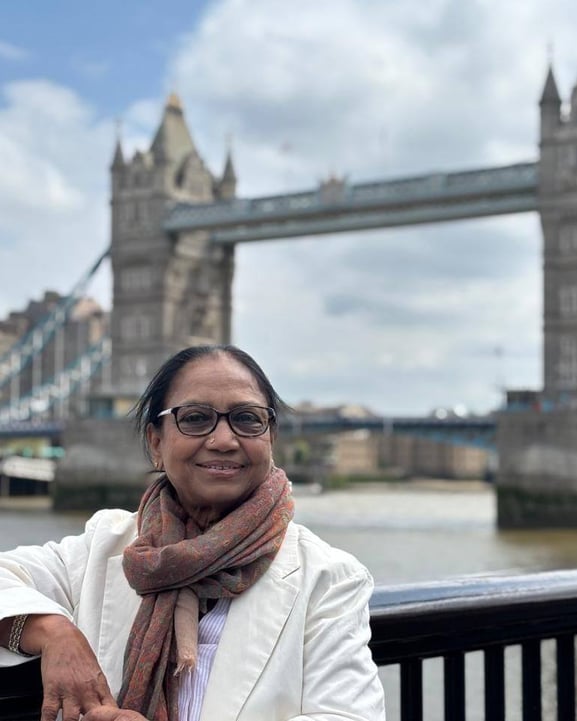Who is Banu Mushtaq? First Kannada Author to Win International Booker Prize
LATEST NEWS


In the vibrant landscape of Indian literature, few voices shine as brightly as Banu Mushtaq’s. A Kannada writer, advocate, and activist from Hassan, Karnataka, Mushtaq made history in 2025 as the first Kannada author to win the prestigious International Booker Prize for her collection of short stories, Heart Lamp (Hridaya Deepa in Kannada), translated into English by Deepa Bhasthi. This milestone not only elevates Kannada literature onto the global stage but also underscores Mushtaq’s profound ability to weave stories that resonate across cultures, giving voice to the marginalized and challenging societal norms.
A Storyteller Rooted in Resilience
Banu Mushtaq’s work is a testament to the power of storytelling as a tool for empathy and resistance. Her collection Heart Lamp, comprising 11 evocative short stories written between 1990 and 2023, delves into the lives of Muslim and Dalit women in South India. These stories are not just narratives; they are vivid portraits of courage, struggle, and defiance against the oppressive structures of patriarchy, religion, and societal expectations. Mushtaq’s characters—women navigating family tensions, cultural constraints, and personal aspirations—come alive with wit, depth, and an unflinching gaze at the world around them.
Her writing style is both colloquial and powerful, capturing the nuances of everyday life with a universal appeal. Whether it’s a woman confronting familial expectations or resisting cultural dogmas, Mushtaq’s stories reflect real-life experiences that transcend geographical boundaries. As she has stated, her aim is to craft narratives that “resonate universally across cultures,” and Heart Lamp achieves this with remarkable grace.
The Journey to the International Booker Prize
The International Booker Prize win in 2025 marked a historic moment for Kannada literature. Heart Lamp stood out for its “wit, vividness, and deeply moving” storytelling, as noted by the Booker Prize jury. Translated by Deepa Bhasthi, the collection brought Mushtaq’s Kannada prose to a global audience, preserving the cultural richness and emotional depth of the original text. This achievement is not just a personal triumph for Mushtaq but a celebration of Kannada language and literature, which has often been overshadowed in the broader Indian literary canon.
Mushtaq’s journey to this accolade was built on decades of dedication. With six collections of short stories published in Kannada, she has consistently championed the stories of the marginalized. Heart Lamp is a curated selection of her work, showcasing her ability to blend social commentary with literary finesse. The Karnataka government, including Chief Minister Siddaramaiah and former Chief Minister H.D. Kumaraswamy, lauded her achievement, noting that her work embodies values of harmony, secularism, and brotherhood.
A Voice for the Marginalized
Beyond her literary contributions, Banu Mushtaq is an advocate and activist whose work is deeply rooted in social justice. Her stories amplify the voices of those often silenced—Muslim and Dalit women facing systemic oppression. By centering their experiences, Mushtaq challenges readers to confront uncomfortable truths about society while celebrating the resilience and agency of her characters.
Her activism extends beyond the page. Based in Hassan, Mushtaq has been a vocal advocate for equality and inclusion, using her platform to address issues of gender, caste, and religious discrimination. Her stories are not just art; they are acts of resistance, illuminating the struggles of those on the margins and inspiring change.
Why Heart Lamp Matters
Heart Lamp is more than a collection of stories—it’s a beacon of hope and a call to action. Each story in the collection is a carefully crafted exploration of human emotions, societal pressures, and the quiet strength of those who dare to defy. Mushtaq’s ability to balance humor, poignancy, and critique makes her work accessible yet profound, inviting readers from all walks of life to engage with her narratives.
The global recognition of Heart Lamp also highlights the importance of translation in bridging cultural divides. Deepa Bhasthi’s translation retains the soul of Mushtaq’s Kannada prose, allowing readers worldwide to experience the richness of her storytelling. This collaboration underscores the power of literature to connect people across languages and borders.
A Legacy of Light
Banu Mushtaq’s Heart Lamp is aptly named—a light that illuminates the struggles, triumphs, and humanity of those often left in the shadows. Her historic International Booker Prize win is a milestone, but it is only one part of her enduring legacy. As a writer, advocate, and activist, Mushtaq continues to inspire readers and writers alike to tell stories that matter, to challenge injustices, and to celebrate the indomitable spirit of those who persevere.
For those eager to discover her work, Heart Lamp is a must-read, offering a window into the heart of South Indian life and the universal quest for dignity and freedom. Banu Mushtaq’s voice is one that will echo for generations, reminding us that stories can change the world—one heart at a time.